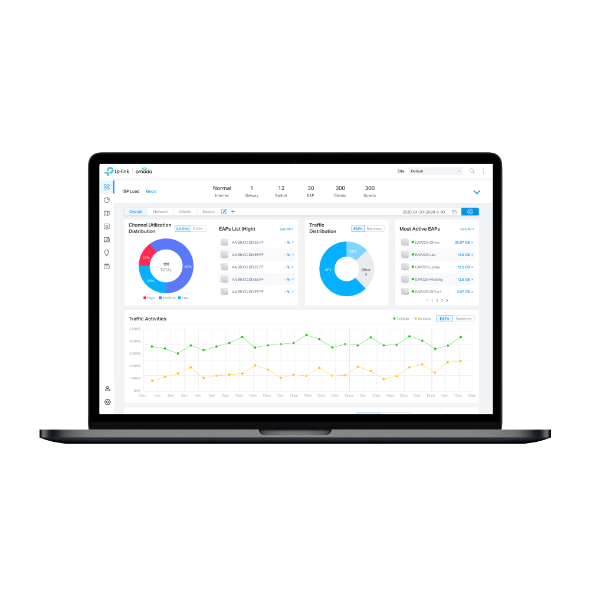Recommended Server Specifications for Omada Software Controller
Apply to: Omada SDN Controller V5
The Omada Software Controller version 5.4.6 is capable of managing up to 10,000 Omada devices (see FAQ#3414). However, to ensure optimal performance, it is important to use servers with sufficient CPU and RAM resources.
It is also important to note that with each Omada Software Controller upgrade, new features may require additional hardware resources, so it is recommended to leave some room for scalability.
Based on Omada Software Controller version 5.9.31, the following table provides recommended server specifications for different numbers of Omada devices being managed:
|
Omada Device Number |
Processor (vCPU, 2.0 GHz) [2] |
RAM [3] |
Bandwidth |
Disk [4] |
|
500 |
4 |
6 GB |
100 Mbps |
50 GB |
|
1500 |
8 |
8 GB |
100 Mbps |
100 GB |
|
3000 [1] |
16 |
16 GB |
100 Mbps |
150 GB |
|
10000 |
64 |
64 GB |
1 Gbps |
500 GB |
[1] To manage more than 3000 devices with one Omada Software Controller, please refer to FAQ#3414.
[2] Omada SDN Controller is I/O-intensive and the number of vCPUs is critical to performance.
[3] Only RAM occupied by Omada SDN Controller and its MongoDB database is included in the recommended, not that occupied by the operating system. It should be noted that the Windows OS might consume more than 4GB of RAM, which should be taken into account.
[4] Only disk space occupied by Omada SDN Controller and its MongoDB database is included, and SSD is highly recommended.
Is this faq useful?
Your feedback helps improve this site.
TP-Link Community
Still need help? Search for answers, ask questions, and get help from TP-Link experts and other users around the world.
